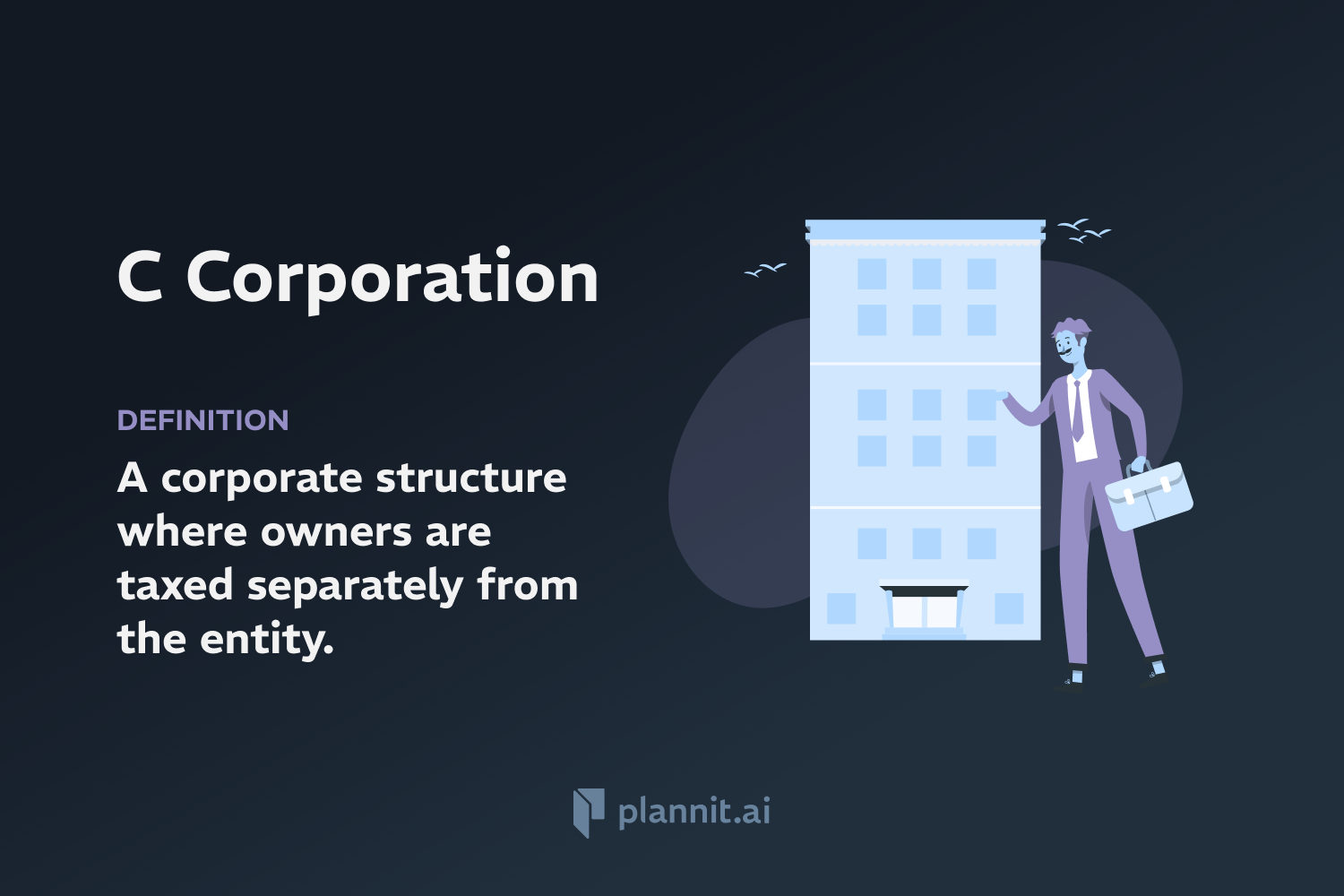Need Help With Your Business Plan?
Answer tailored questions and get a detailed business plan in minutes.
C Corporation: Definition & In-Depth Explanation

A C Corporation, also known as a C Corp, is one of several ways to legally structure a business in the United States. It is characterized as a separate legal entity from its owners, meaning the corporation itself can be taxed, sued, and enter into contractual agreements. The owners of a C Corporation are the shareholders who invest in the business by purchasing shares of stock, and they have limited liability protection.
Purpose:
The purpose of a C Corporation is to operate as a fully independent legal entity that provides its shareholders with limited liability, meaning their personal assets are protected from claims against the corporation. C Corps are particularly advantageous for businesses that plan to reinvest profits back into the company, seek venture capital, or go public. They are also well-suited for businesses that expect to eventually sell or transfer ownership.
Example:
A technology startup may choose to incorporate as a C Corporation to facilitate the raising of capital through the issuance of public or private stock. This structure allows the company to offer stock options to attract talented employees and to protect the personal assets of its founders and shareholders. When the company earns profits, it is taxed at the corporate rate, and dividends paid to shareholders are taxed again at the individual level.
Related Terms:
Double Taxation: A drawback of C Corporations where profits are taxed twice—first at the corporate level and again at the individual level when dividends are distributed to shareholders.
S Corporation: A type of corporation that meets specific Internal Revenue Code requirements and elects to pass corporate income, losses, deductions, and credits through to shareholders for federal tax purposes.
Limited Liability Company (LLC): A business structure that combines the pass-through taxation of a partnership or sole proprietorship with the limited liability of a corporation.
Shareholder: An individual or institution that legally owns one or more shares of stock in a public or private corporation.
FAQs:
What are the benefits of a C Corporation?
Benefits include limited liability protection for owners, ability to raise capital through the sale of stock, perpetual existence, and enhanced credibility with potential customers, vendors, and partners.
How is a C Corporation taxed?
A C Corporation is taxed on its corporate profits at the corporate tax rate. When profits are distributed to shareholders as dividends, they are taxed again at the individual shareholders’ tax rates.
What is the process of forming a C Corporation?
Forming a C Corporation involves filing articles of incorporation with the state, establishing a board of directors, creating corporate bylaws, issuing stock, and complying with all other state and federal regulations.
Can a C Corporation have shareholders outside the U.S.?
Yes, a C Corporation can have foreign shareholders, and there is no limit on the number or nationality of its shareholders.
What are the disadvantages of a C Corporation?
The main disadvantages include double taxation of dividends and the possibility of more regulatory paperwork and compliance compared to other business structures like S Corps or LLCs.
Get funding with a business plan that will impress investors.
Starting a New Business?



